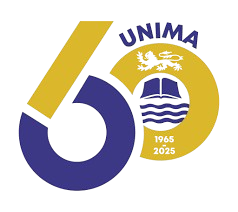WCNREG Seminar Sharpens Student Research on Rights and Environmental Governance
On 8th to 11th April 2025, the Public Law and Clinical Legal Education Departments hosted a data analysis seminar for the Women’s, Children’s, and Nature’s Rights in Environmental Governance (WCNREG) Master’s programme in School of Law Economics and Government (SLEG) in the Law buildings boardroom. WCNREG is a Regional Online Master’s programme jointly offered by the University of Oslo, the University of Nairobi, the University of Zimbabwe, and the University of Malawi. The regional Master’s is hosted by University of Nairobi and is part of a Research Project funded by the Norwegian Agency for Development Cooperation (NORAD)’s NORHED II programme. Malawi has 12 students in the programme and they all attended the seminar supported by NORHED.
One partner from University of Zimbabwe, Professor Julie Stewart, was in attendance, as well as Commissioner of Research and Planning for the Malawi Police Service, Mr. Dennis Chipao, who has expertise in the grounded theory approach that is encouraged in the studies of women, children, and nature rights in environmental governance.
During the seminar, the SLEG Executive Dean, Professor Happy Kayuni, commended the coordinators and the project team for organizing the seminar that will enrich the students experiences in research through the expert feedback that they would get to refine their methodologies as needed. Prof. Stewart stressed on the importance of the students’ work to be coherent, consistent, orderly, logical and to have conclusions based on evidence from literature, law, and other theoretical concepts. Commissioner Chipao highlighted that analytical thinking and triangulation of results are important parts of the research process.
The different research areas that the students are tackling will have an impact on Malawi as they seek to investigate and understand the governance issues around nature, women and children, which are also in line with the Malawi 2063 enablers: Effective Governance and Systems, Enhanced Public Sector Performance, and Environmental Sustainability.
The presentations sparked insightful discussions, with feedback focusing on issues such as conceptual clarity, data interpretation, and the alignment between research questions and evidence. The students expressed appreciation for the opportunity to engage in rich academic dialogue, describing it as “eye-opening” and “timely,” especially as most are approaching critical phases of thesis development and are able to appreciate the constructive critique, realize their gaps and improve in their focus on what is important.




